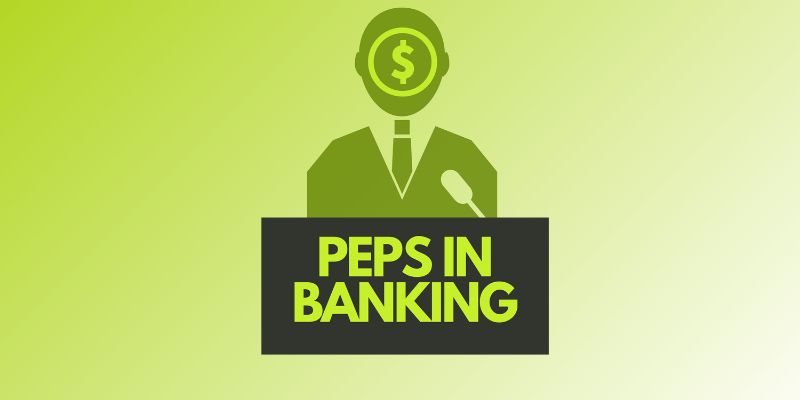Are regulators doing enough to stop corruption facilitated by Banks? Central bank governor Mark Smith said, “We need stricter rules and enforcement to ensure PEP transactions are not used for illicit purposes”.
Global regulators have become more belligerent in the implementation of fresh and existing legislation to regulate the abuse of banks by PEPs.
A head of state, politician, or government official is classified as a PEP. As such, their offices entail higher risks of money laundering and bribery. The regulators ensure that the dirty money flows are checked.
The transparency of the financial system increases by tightening the regulation of anti-corruption measures towards banks. Monitoring PEP transactions increases, as do ties with relatives or associates.
Tighter Rules Target Politician Transactions
Regulators have new obligations to learn more about transactions by PEPs. Banks must scrutinize all transactions of individuals who are politicians scrupulously.
They must be aware of where money comes from and where it is going when it hits corruption. By 2023, 45% of financial institutions reported strengthened scrutiny of PEP transactions, which was a tremendous rise in the given period.
It bars PEPs and their immediate family members from concealing funds for nefarious activities such as bribes.
Bonus: Stricter controls are defeating corruption in banking. Get an inside view of how politically exposed persons impact your money at our financial news site.
Enhanced Due Diligence is now Mandatory.
Traditionally, banks have not been required to vet all PEP customers. The regulators say they should now always do more checks on PEPs and their relatives or close friends. This includes where a PEP screening sourced its wealth and why it needs an account.
In 2023, 72% of banks said they have stepped up due diligence on PEPs, a reflection of enhanced regulatory expectations.
This helps banks to understand their corruption risks better. It further helps monitor what PEPs and RCAs are doing with the money.
Knowing Your Customer Just Got Deeper
Banks are trained to identify customers, like PEPs, and they gather proper evidence. They must know more about the finances, occupation, net worth, and the people who have a close tie with them.
In 2023, 85% of the banks enhanced their customer identification procedures for PEPs as per new laws.
In this way, they will be able to understand their clients by deeply knowing them about corruption or money laundering.
They can also do better by completing checks on RCA and PEP checks that may help eradicate corruption in finance.
Transaction Monitoring Systems Get Smarter
Banks have new computer programs that closely watch customer deals. They can detect unusual PEP transactions, including all those links to corruption. They learn about the risks of different PEPs, like their country.
In 2024, 65% of banks reported using advanced analytics to monitor PEP activities, further indicating an increasing dependence on technology for these risk assessments.
They also track ties with other high corruption-risk people, such as RCAs. Banks and regulators see any dodgy PEP corruption or money movement immediately.
Higher Risk Rankings for PEPs
Regulators are saying not all PEPs are alike. The ones from places with higher known corruption issues now boast even higher danger scores.
As of 2024, PEPs from countries with high corruption perceptions are now categorized with an average risk score increase of 30%.
Bank clients must be watched closely on PEPs and RCAs. This gives better corruption monitoring focus where it is actually needed. This helps do the right PEP checks on those more likely tied with bribery or theft from people.
Penalties Drive Compliance with KYC Laws
Regulators prove they are serious about curbing PEP corruption. Banks risk heavy fines if they do not adhere to the ‘know your customer’ regulations. The laws aim to put an end to financial corruption and the abuse of dirty money.
In 2023, the number of penalties related to non-compliance went up by 30%, which showed that financial institutions urgently need to stay within the regulations.
Compliance is necessary as non-compliance favors PEPs and RCAs to keep their corruption money under wraps. Harsher punishments make the banks look at every PEP and RCA corruption.
Protecting Reputations by Protecting Data
Not sharing client information is the most important aspect of finance. However, in doing so, sometimes it also safeguards PEP corruption.
The sharing of data with other banks and regulators on PEPs, RCAs, and transaction history is going up, showing a 65% increase in collective data-sharing initiatives reported during 2023.
This aids in tracing corruption funds across borders. At the same time, the safe handling of sensitive PEP data maintains trust within the financial system.
Setting a Global Standard for Transparency
Rules are being standardized internationally in performing the proper PEP checks and monitoring of relatives and close associates corruption.
This removes the veil of secrecy walls that corruption often exploits. Clear expectations also allow foreign banks to identify PEP corruption.
More than 60 countries adopted new regulations that strengthen PEP monitoring in 2024 as the world continues to be committed to transparency.
United compliance eliminates the possibility of dirty PEPs or RCAs running to another country. Learn more about PEP corruption to save your banks from money laundering through our website.





